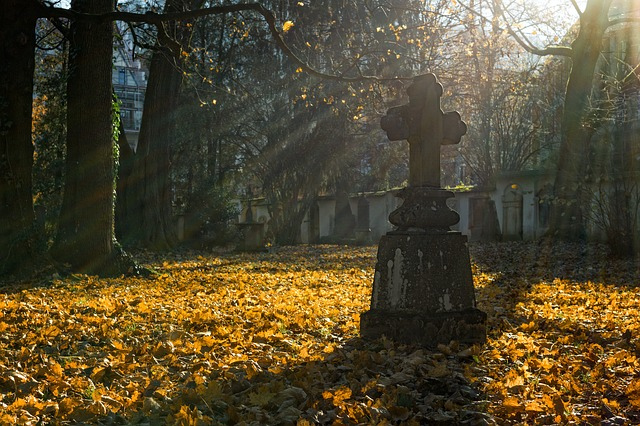How to Get a Copy of a Will

Sometimes you find yourself in a situation where you must get a copy of someone’s last will and testament. If you need to obtain a copy of a last will for the estate for any reason, either for legal purposes or if you are simply curious, there are a few ways to get a copy for your records or to look it over.
You may be able to secure a copy by simply requesting it. How you go about obtaining a copy depends on the legal status of the will and where the will is located. Here are some steps to take which may help you figure out how to get a copy of someone’s will.
Is the Owner of the Will Alive?
A will is a private document providing information about the person’s estate. If the person, whose will you are seeking is still alive, the only way to obtain a copy of the living person’s will for your own use is to ask the person who wrote it. This person is referred to as the testator.
No one can be forced to show their last will and testament even to their named beneficiaries. The testator can share copies of the document with anyone they wish; it is entirely up to them.
The living person’s will at their home, with their attorney, or filed with the local probate court. If the will is filed with the court, it will not be available for viewing.
Who is the Executor of the Estate?
If the person who drafted the will has died, there is a good chance they named an executor to their will. This is the person appointed by the deceased to oversee their financial affairs after they are gone. The executor has sole control over all matters pertaining to the will and the legal right to determine who is allowed to see it or receive a copy of it. Executors may also be referred to as personal representatives.
If an executor has been appointed after the person dies, they will be the one who gives you a copy of the will if you are eligible. If no one knows who was named executor or no copy of the will can be found more digging would be required to locate the document.
Finding a Will for a Deceased Person

If the deceased is a family member, The first place to check is in the person’s home or where the deceased person lived. Most people will keep a copy of their will at home, along with other estate planning documents. So, this is the first place to look.
Check files and home safes, lock boxes, and such for the document. If the will cannot be found in the home, keep an eye out for court documents, letterheads, or business cards from legal firms. The relative may have used a different lawyer for certain filings, or they might have valuable information.
Look in the Safe Deposit Box
Check the deceased’s financial documents for names of banks they might have used. There’s a chance the will could be in a safety deposit box along with other private documents. This could be a problem if the will’s creator is the sole owner of the deposit box.
Some banks do allow temporary access to remove a will under the supervision of a bank official. To make things more complicated, some states require a court order to open a deceased person’s safe deposit box.
Attorneys and Law firms
Chances are if the person has a last will, they most likely used an attorney near where the deceased resided. Contacting the law firm used for drafting and filing the will can help in obtaining a copy of the will and other legal papers. If you have the name of the attorney the deceased used, you should contact them. You may want to include a self-addressed stamped envelope with a written request to ensure it reaches the correct address.
Typically, when a law firm drafts a last will and testament, they give a copy to the client and retain the original for safekeeping or file it with the courts. Depending on how long ago it was drafted, the firm holding the will may no longer be in business.
Law offices may relocate, move their file storage, or change ownership. Any of these circumstances could cause a document to be lost. Also, the attorney who crafted the last will may have passed away or retired.
Contacting the last known attorney or firm should be the next logical step to obtain copies of a will. Even if the firm has changed hands or the attorney is no longer available, the firm could still provide you with information that is useful in tracking the last will. The firm may have the file number if the will has been filed and recorded in the local courts, they may also have the name of the person that has been named as “Executor” of the estate.
How to Obtain a Will from Probate Court

If you can’t find a copy of the will for the deceased person’s estate after following the previous methods, there is a procedure you can follow to obtain it from the courts. If the will was filed in probate court, once the testator has died, the court will open the will and it becomes a public record.
If you have the probate court file number for the last will and testament, you can access it by phone, online, or in person at the courthouse with the court clerk by providing the deceased’s name and date of death. The will’s executor can give you this information. If not, you can check with the probate court to see if the relative’s will has been filed, which would make it a public record.
Online Access

Some probate courts have an online docket you can search by simply typing in the deceased person’s name. No date of death is needed for the public court record.
Getting a copy of the will from the probate court may require a copying fee and possibly a self-addressed stamped envelope. A certified copy of the will is a document that has been stamped and certified by the probate court to be an exact copy of the official document.
How to Get an Unfiled Will
If the testator has died, but the will was never filed with the courts, then it is not a public record yet. However, if you have been named as a beneficiary or the guardian of a child named as a beneficiary, you may still be allowed access. Most state laws allow for the will to be viewed by its beneficiaries.
You should contact the executor of the will and request a chance to view the document. In cases where the executor is unknown, obtaining a copy of the death certificate will help. In most cases, the executor of a will is named on the death certificate.
If you don’t know if you are named as a beneficiary of the will? You can seek legal action through your county probate court to force the person holding the will to file it for probate. Some states may have laws making it a crime not to file a will to start the probate process.
Are Copies of Wills Valid?
Typically, only the original copy of the will that was filed with the county court is considered valid. A copy of a will may be admissible in county probate court if the original has been destroyed. But only if it was destroyed by fire, flood, or some other natural cause or if the original was lost by the testator.
If the original will has been destroyed, lost, or thrown out by the testator, the court considers this an intentional revocation of the original document, and therefore any copy is no longer valid.
Legal Help to Prevent Lost Wills
Locating a will can be challenging and time-consuming, but with careful research, diligence, and a dedicated search, you should be able to obtain what you are looking for. It’s also helpful to note that a will isn’t necessary for non-probate assets of the estate, which pass directly to the named beneficiaries. You will need other important documents to transfer the ownership of those assets.
If you are creating a will, you should consult with an attorney for legal advice. They can also help you set up a living trust, which eliminates the need for most wills. and protects your property from the probate process.
